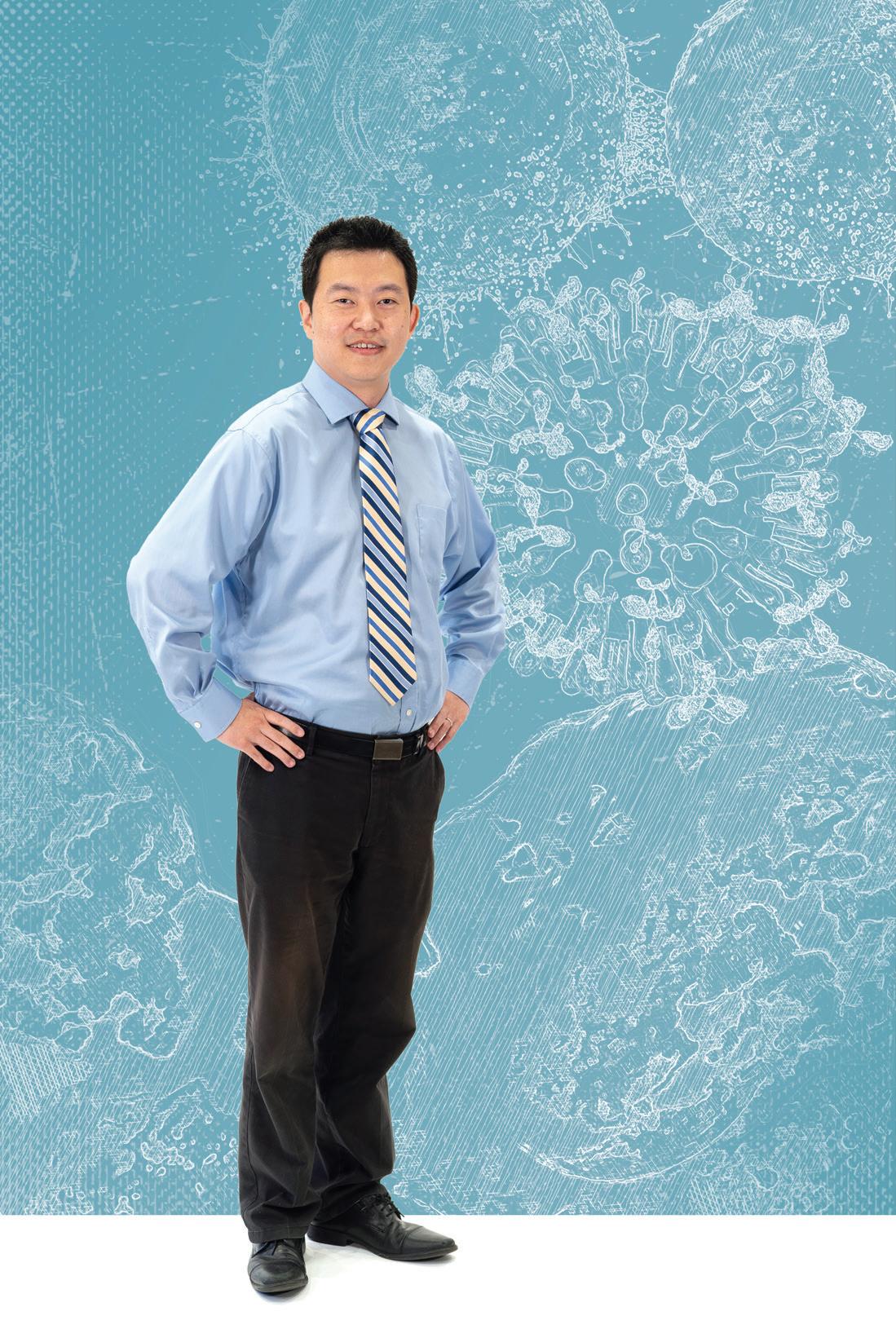
2 minute read
YEAR OF THE TIGER: YONG ZHANG
BROAD SPECTRUM
Year of the Tiger
Yong (Tiger) Zhang currently leads the School of Pharmacy in grant support for research targeting a wide range of diseases. He explores protein post-translational modifications, which are essential to biological function, to discover new therapeutic targets for cancer, neurodegenerative diseases and immune disorders. He is also engineering antibodies to treat these conditions—along with infectious diseases—more precisely.
His techniques fuse chemistry with biology. “We want to understand the fundamentals of biological systems using the chemical approach,” Zhang says. “Through this, we are inventing new chemicals and synthetic molecules that can potentially be used to improve human health.” This includes using exosomes, which are vesicles secreted by cells, to generate drugs that can target and treat cancer—and that could also potentially help stop neurodegeneration.
Zhang’s multidisciplinary focus on translating discoveries into healthier patient outcomes has garnered funding from the National Institutes of Health, Department of Defense, American Cancer Society, V Foundation for Cancer Research, STOP Cancer and the American Association of Physician Specialists Foundation, among others.
Some might call the boldness of his endeavors predetermined. When he was born in Baotou, China, his parents nicknamed him “Tiger” to represent strength, energy, health and selfdetermination. “In Chinese culture, parents like to give nicknames to their children to express their wishes,” Zhang explains.
China’s single-child policy meant he would be his parents’ only progeny. But Zhang made their wishes come true. In middle school, an inspiring teacher lit a spark about the potential for science as a future career. Although none of his relatives were scientists, his mother and father encouraged him to pursue his own path.
That path has spanned the globe. Zhang earned his bachelor’s degree in biological sciences at Shandong University. Then he traveled nearly 6,300 miles for his master’s in biophysics at the University of Guelph in Ontario, Canada. He completed his educational odyssey with a PhD from the Albert Einstein College of Medicine in the Bronx, New York.
While most of his peers pursued jobs in industry, Zhang wanted an academic career. He joined the USC School of Pharmacy in December 2014. He strives to inspire students about the possibilities in science—just as his teacher did for him. In his lab, he leads a talented team of students and postdoctoral fellows in developing new approaches for cures and improved diagnostic techniques.
“Our lab is very creative, so I need motivated students who think outside the box,” Zhang says. “Many established investigators just want students to do whatever they’re told. But I want students to think for themselves so they can fully develop. They know they can bring ideas to me, argue with me and try to convince me that they are correct.”











